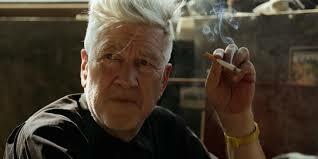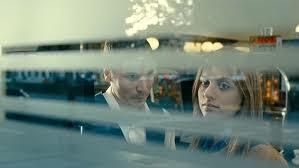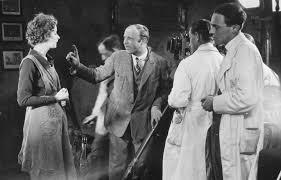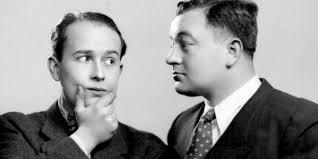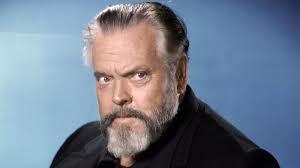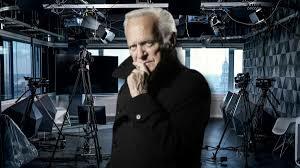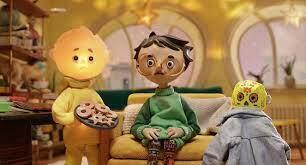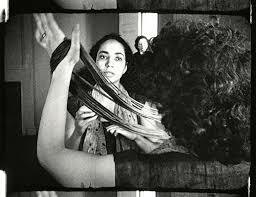Alfred Hitchock: "In connection with North by Northwestern Line and the authorial arbitrariness that I profess as a religion, I want to tell you about a scene that I worked on, but ultimately found no place for in the film. (...) We're northwest of New York, and one of the stops on the way could be Detroit, where the big Ford car plants are. (...) I wanted to do a long dialogue scene with Cary Grant and the factory foreman at the conveyor belt. They're both walking and talking about a third person who maybe has something to do with the factory. Behind them, they're assembling the car piece by piece, even filling it with oil and gasoline already. At the end of the dialogue, they both look at the car, which has risen from nothing, from a single screw, and is now ready to go, whereupon they say to each other: What an amazing thing! Then they open the car door and a corpse falls out. Where did the corpse come from? Hardly from the car, since we've followed its creation from the first bolt! The corpse fell out of nowhere, you understand? And it's probably the corpse of the man mentioned in the dialogue."
There's more than meets the eye to what Alain Robbe-Grillet and Alfred Hitchcock have in common. A religion of authorial arbitrariness as opposed to narratives obedient to the laws of probability. The conviction that the plot should be no more than an excuse to explore all the formal variations it offers. A relative indifference to the socially pressing issues that win festival awards, such as the environment, oppression of minorities, poverty, unemployment. Indifference to sex and death.
François Truffaut: "I think, Mr. Hitchcock, you are attracted to emptiness. The cinema is empty, you want to fill it, the screen is empty, you want to fill it. You don't start from the content, but from the frame of the content. For you, the film is a container that needs to be filled with visual ideas."
Robbe-Grillet doesn't mean anything significantly different when he says, "I don't want to express anything. There is nothing I might want to express. I want to work with forms." The scene with the corpse that couldn't get into the car it fell out of, we wouldn't be at all surprised at Robbe-Grillet's - after the initial surprise.
"The viewer is looking for something to understand, and if he doesn't understand, he says: I missed the point of this film. But maybe he hasn't missed it at all. In short, it is possible that the film has a mystery that cannot be understood." Says Robbe-Grillet and continues in the spirit of Hitchcock:
"It is not necessary to decipher the code at all. The fact that the structure does not match the usual one makes the viewer aware of it. If he doesn't recognise in it one of the traditional narratives, he will perceive an alternative structure. Deconstruct it? That is not necessary. I admire, for example, the work of Alban Berg, the music in Woyzeck and Lulu, but I am not able to deconstruct it. Not even the music of Richard Wagner. Deconstructing it would give me an added pleasure, but also nothing more."
All strangers, all shaky identities... One of Vertigo' s defining moments is the one in which Judy writes a letter to Scottie revealing that she is not merely a lookalike of his beloved, the supposedly deceased Madelaine. However, she doesn't send the letter, so its real recipient was a moviegoer. Kim Novak remains, almost until the very end of Vertigo, a woman who lies.
As for Robbe-Grillet's liar-faced Jean-Louis Trintignant, he addresses the viewer with words in the first few minutes: "My name is Jan. I'm going to tell you my story..." But after a slight pause, "Where was I? I see: My name is Boris... Boris Varissa, but they call me Jan, sometimes a Ukrainian too, but I never found out why..."
Which is just one of the millions of things we don't learn from our writers. From two followers of the same religion, one born in London and the other in Brest.


